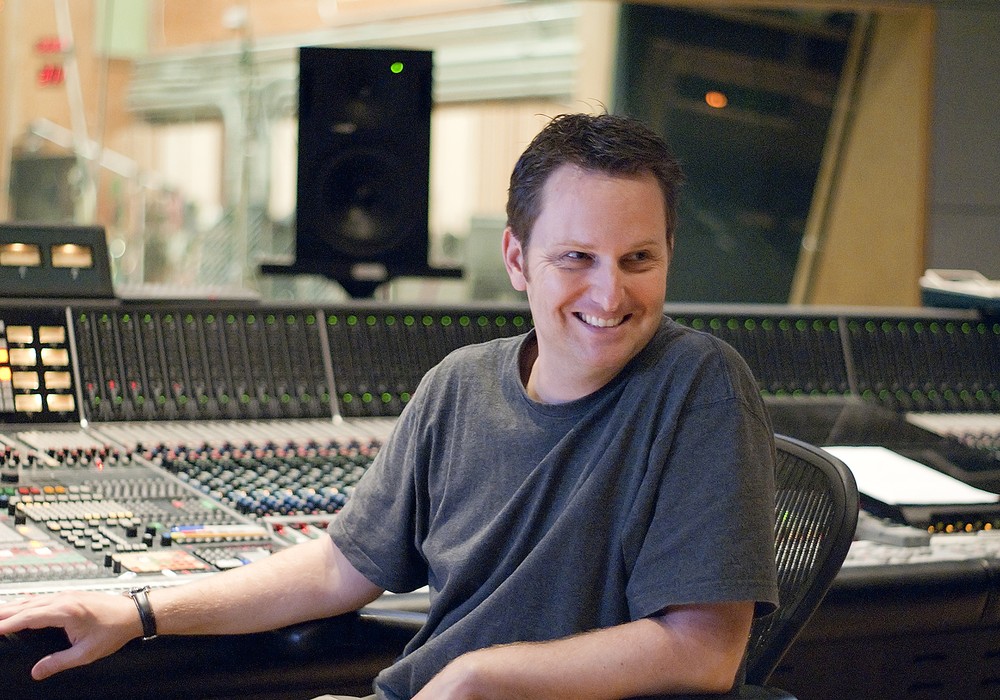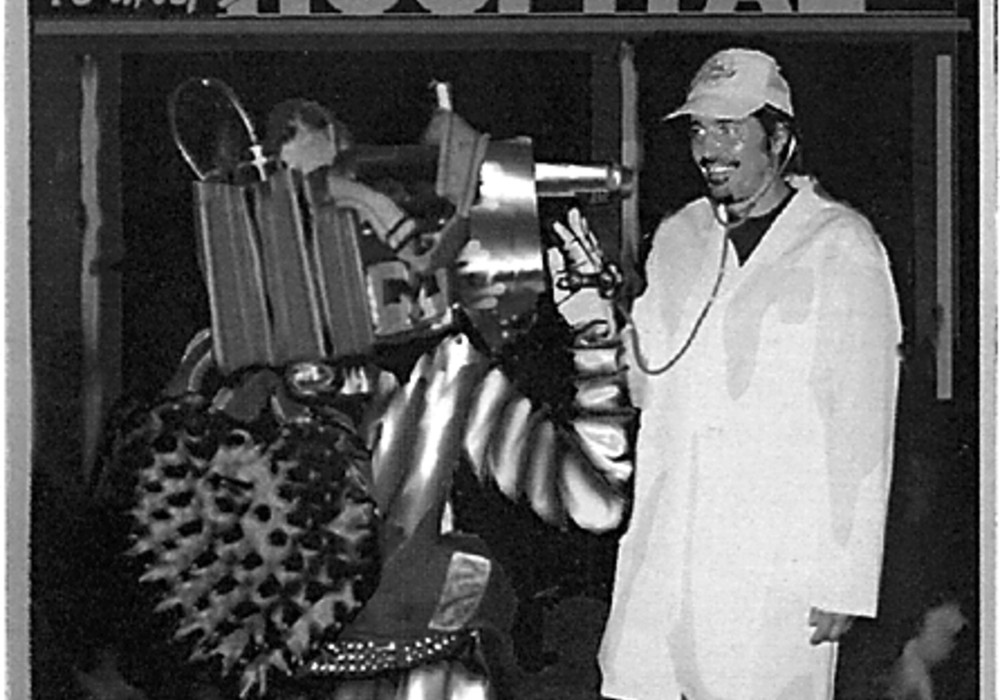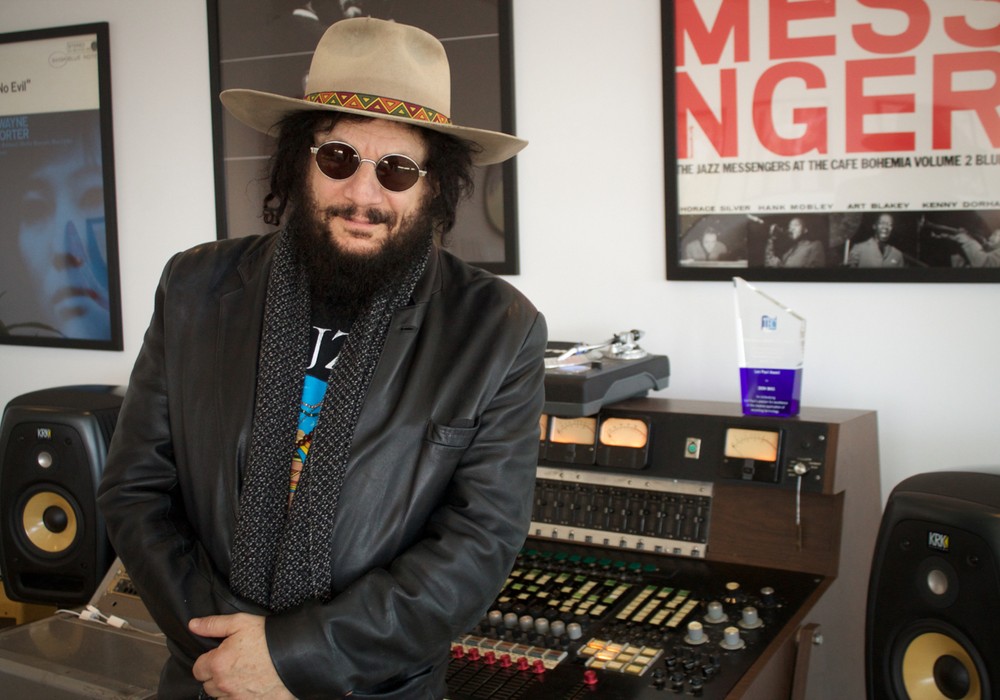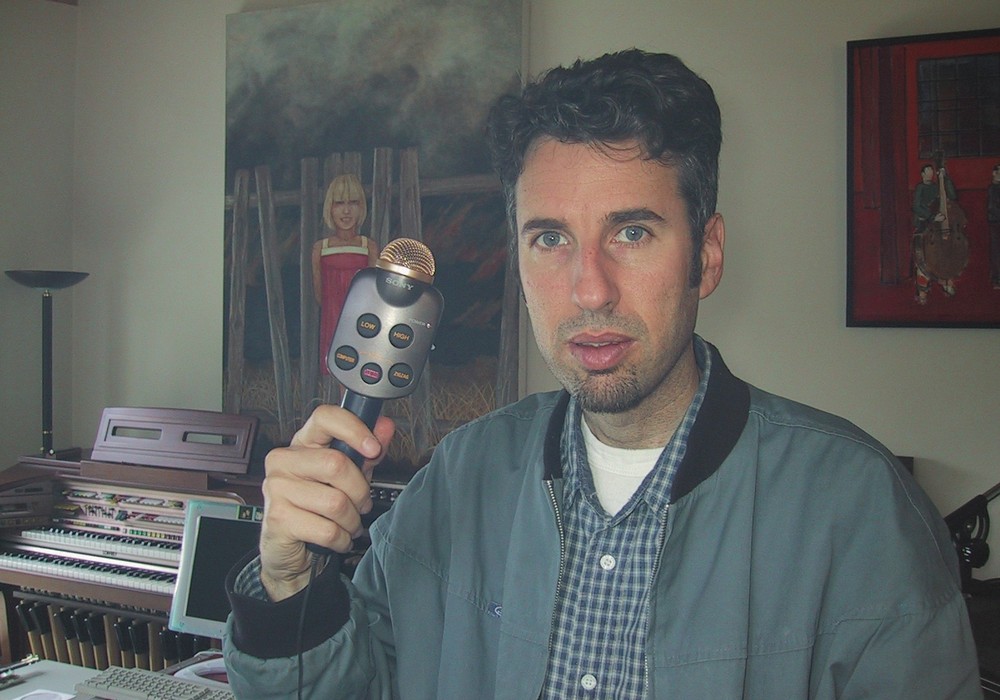One of the many things I find interesting about Neurosis is that they sound almost exactly the same, be it in a live setting or on any of their albums that you've recorded.
Well, they're an example of a band that has figured out what they want to sound like. When they go into the studio, they basically execute that plan. They have a huge collection of equipment which they have made sort of fool-proof and roadworthy so they can go anywhere and set up, and sound precisely they way they want to.
This would include everything like their amps/heads and so forth?
Well, they have a very specific drum kit, a very specific keyboard and sampler setup, very specific amplifiers and effects units that are sort of wired in 'special'. I mean, Steve Von Till's guitar doesn't even have a pickup selector on it — because that's wired into his switching unit, which is what he uses to switch through his different sounds. So, it's a very integrated system. You can't plug his guitar into a normal guitar amplifier — you have to plug it into his setup.
So they recorded A Sun That Never Sets in room A of Electrical Audio...
The last album was recorded in studio B and the new one was recorded in studio A. The Times of Grace album — relatively speaking, they spent a long time on it because they were recording a lot of material. Times of Grace is the equivalent of a double album effectively. Then they recorded another album's worth of material for use as b- sides, and then they recorded another album which they released [last year] called Sovereign, that they're describing as an EP but it's like 40 minutes of music or something like that. So that's another album. So, they've effectively recorded 4 albums while they were in the studio last time.
I take it that things were done mostly live with some separation?
Well, the way studio B is set up — there's a big live room, and there's a big isolation room. So — there was room in the isolation room to set up all of their amplifiers and everything, and in the live room, there was room to set up all the drums, all the keyboard stuff and the extra percussion — because on that record, they were doing a lot of stuff where 3 or 4 of them were doing percussion. So, they could basically play as they would at a live show. The only difference being that the guitar amplifiers were behind a glass door.
So what was the atmosphere like?
Well, they're very entertaining people. They're heavily tattooed and they really love the Oakland Raiders. But generally speaking, they're real sweethearts, you know? I don't think anyone ever raised their voice about anything except the Raiders the whole time they were here.
Steve mentioned that they made you sync up an ADAT? Is this true?!?
Oh — they had this idea of putting a bunch of extra overdubs that they wanted to record in San Francisco. They wanted to put a bunch of overdubs on some of the masters that were going to be string sections and stuff. Then Noah was also imagining expanding some of his keyboard stuff on some of the songs and there wouldn't have been room on the multi-track to do a proper job of everything else if we tried to keep space open for that stuff. So, they slaved an ADAT for a couple of songs, but literally only a couple of songs. The hassle of having to use one of those fucking machines — especially in tandem with a real tape machine — is not worth it. I don't care if you can get 8 more tracks or 7 more tracks or whatever on your record as a result. It's not worth it. Those things suck. They're horrible to work with. They're slow. They make everything slow down. It takes twice as long just to play your goddamn record back. There's a hundred things you can't do with those little things that you can do very easily with a real analog tape machines. I have no patience for completely relearning how to engineer a record for the sake of a box.
Or for the sake of what the manufacturers deem as "convenience".
They have a level of convenience if you're doing something that is really rough, semi-amateur recordings. It's convenient in that regard so you can throw in one tape and record for a really long time for like 40 minutes or whatever. And, if you don't want to go through the trouble of taking care of a tape machine, then, ADATs are slightly less trouble because you can't fix them. Basically you have to throw them away and buy a new one. Whereas with a tape machine, you have to fix them now and again.
Von Till expressed that he doesn't like to mix with NS-10s.
I can tolerate NS10s pretty well, but they are bad for extended sessions because the ear fatigue can be extreme. Here at Electrical we use B&W Matrix 805 speakers, though we also have Westlake BBSM12, Westlake BBSM4, Tannoy, Yamaha and others.
The mixes of the Neurosis records you worked on — I noticed they don't have that 'LA' radio competition compression sound. Your mixes can be played loudly without having to turn them down.
Well, that whole loudness excuse has been a thing for hacks for the last 30 years. Anytime anyone makes a shitty record they say, "Well, they wanted it to be loud." I don't buy that at all. I think it's a load of crap. People have been compressing "commercial" music since the invention of the compressor. And people either credit that as being the reason records sound good or the reason records sound bad. I think that it sounds bad and I won't do it. There are some records that were made with a lot of compression where that has been sort of become incorporated into the style that you associate with that band or those records and it becomes invisible at that point. But whenever I've tried to put compression on a mix that I was working on, the one thing I've noticed about it is that it sounds worse. Not that it gets louder or whatever — I understand what people are doing. What they're doing is that they're raising the average volume or the apparent volume of a signal by limiting the peaks, and I understand that principle. I think that in the mastering stage, that can be done judiciously and transparently, but the kind of stuff that I hear now is just horrible and I'm just not into it. I've never been into it. People have used that as an excuse in the 1970s, and they used it as an excuse in the '80s and they used it as an excuse in the '90s — like, "Oh, we've got to make it compete on the radio." But it's a load of crap. People just compress records because they think that they should. If you listen to a compressed signal and you listen to an uncompressed signal, the compressed one sounds worse. I just don't understand why people are willing to make that horrible compromise.
So when mixing — it's best for an artist to have things down well before- hand, and then it's just.
Well, I like to give bands credit for knowing what they should sound like, you know. I like to think a band will have a mental image of itself, which is a valid one. And what we're trying to do in the studio is present that image of itself to the band's audience. And mixing, in a lot of cases, is the easy part. What you're trying to do is present a balance to the instruments that allows what the instruments are doing to be heard.
Right. So it's sort of like just being able to put up the faders.
In some instances, yeah. I mean, there's always some stuff that needs to be helped along and there's some stuff that doesn't have the same effect on the listener as it is meant to so you need to sort of cheat and help things along. There's a lot of stuff that you can do in the mixing stage to clean things up or exaggerate the drama at certain moments. It can be done well and it can be done poorly, but I don't think that's where a record is made. I don't think the mixing stage is the most important part. It's an extension of the recording process in my mind.
So the entire process should be seen like an Alfred Hitchcock approach to things?
You're using some analogies I'm not getting here! [laughs]
I meant that things should be planned out as much as possible beforehand — therefore, making the production process a mere technical task, yet allowing and accepting spontaneity to occur.
Well I do think that recording is primarily a technical job. I don't think it is as creative as recording people want to think it is.
Right.
But, I don't think that everything needs to be planned out beforehand. I do think you have to be open to do whatever is required at the moment. I think that it is impossible, for example, to have just one method for recording a band and apply that to everybody, because one says they are "prepared to do it this way, that's the way we're going to do it". I think, in a lot of circumstances, one has to do things completely differently, like recording a band like Labradford or Low, which is totally different from recording a straightforward rock band like say, Silkworm or the Jesus Lizard. And that's totally different from recording a very tightly orchestrated, technologically-dependent record like a Neurosis record. And that's a completely different set of requirements from recording a sort of orchestrated pop record, like, say Edith Frost or Plush. Each one of those circumstances is completely different. And if you're not prepared to do whatever is required for the moment then you're going to fuck up one or the other of those records. So I don't think one can have a plan that they can execute for every record, but I think it is incumbent on the engineer to be prepared and to know what he's doing so that no circumstances will stump him. That's the worst situation, when there's people whose time is very tight and very valuable and they're spending their life's savings to make a record and the guy that they've come to to make a record for them is scratching his head saying "I don't know what to do!", That's the worst, and that's the situation I'm always trying to avoid. I always try to be prepared for whatever comes at me.
Scott from Neurosis said you are very quick to perform a tape edit — no hesitation to do so whatsoever.
Well tape editing is the easiest way to get stuff done sometimes. It comes up most often in mixing but it does come up in recording as well. Like, for example, if you're mixing a song and you blow the ending — it's a lot easier to just re-do the ending. In the case of Neurosis — each of their songs might have component parts that are equivalent to entire songs. They might require completely different sound textures and rather than trying to make all those changes on the fly, you can mix each of those sections suited to itself and cut them together. That also allows you to make the transitions between sections more graceful or powerful or whatever. And in the recording stage, if a band does a great first part of a song and a lousy second part, well they just have to do the second part again, cut them together and you have a complete take. There are some records that are more dependent on that technology than others. Generally speaking, the more prepared the band is, the better they are at executing their ideas, the less editing needs to be done.
You mentioned being prepared for any method of recording — have you done any hardcore Pro Tools-drenched sessions?
I have only had to use Pro Tools on a couple of minor repairs on a couple of sessions. It's a total joke. It is slow, sounds bad, and causes a whole Hell of unique problems. I hate it. I will go on record saying I think it is impossible for a decent record to be made in a Pro Tools environment. I am using the term "Pro Tools" as a generic term, the way "Kleenex" means any kind of tissue.
[laughter] There is a certain plug-in for it that's being used on vocals in a lot of major label recordings these days...
Antares Autotune. It is like a rash on contemporary recordings, and will make them laughable to the future.
Alex Newport had told me that he considered Ian Burgess to be a mentor during his formative years and that you had learned your tape editing chops from him as well.
Yeah. He was a real sort of mentor and friend to a lot of bands and a lot of people who were interested in recording in Chicago in the '80s. He was a great believer in the 'wacky idea', because the conventional idea does often give you very predictable results which is what you're looking for, but, the wacky idea gives you an excuse to do something you might not ever want to do otherwise. Like, he was up for doing things like, well if you wanted to do any physical manipulation of the tape just to see what it sounded like, he'd be happy to let you do it, partly because he wasn't ever working with his tape machines because they were always the studio's and didn't really care if they got broken. But, he also had an inquisitive mind — he was curious.
So Neurosis' new album on Relapse records — A Sun That Never Sets — where have they taken their craft to?
It's an extension of the dynamic shift that went on with the last album. The last album [Times of Grace] was the first of their albums that really had a wide emotional and sonic range to it. Their other records were basically full-throttle all the time, and Times of Grace had some gentle moments and some moments of suspense that I think made the big loud crazy parts more effective. This new album — they're working in the sort of middle- register of dynamic more often. There's some full- on, full-throttle roaring stuff, and then there's some very quiet, delicate stuff but they're working in the space between those two a lot more rather than jumping from one to the other.
I also noticed that on their earlier albums, there's more experimentation going on as they're trying to find their sound. There'll be all these crazy effects going on with the vocals and such and then with say, Sovereign, the vocal tracks are dry but there is an effect going on, stronger than any black box can make — it's difficult to explain!
Well, part of it is that I think they have associated specific sound effects with certain songs in their minds. Like, there are songs of theirs that require a sound effect in the same way that they require a b-flat. So the sounds effects are incorporated now in compositional moments. And with Noah having joined the band — it gives them the opportunity to use a much wider range of sound effects. So now it means they don't have to whip something up in the studio to make a funny sound — they can have something that's perfectly chosen and on-point that Noah plays that delivers the funny sound quotient. And that frees them up and it removes that mental uncertainty of, "Oh I wonder what it's ultimately going to sound like?!" It removes that and makes it so that they know what it sounds like because they've heard it in rehearsal.
The mental uncertainty is removed and confidence replaces it. So to wrap things up — you appreciate aggressive and heavy music — what is your take on what Neurosis do for you as a listener? For me, it's a very intense psychological and mind probing experience.
Hmmm. What I like about their music is that they have taken as a starting point, the notion that you can explore anything in depth. So alright — let's say you have a heavy moment. It doesn't have to be one dynamic in heaviness — you can have an entire range of expression in 'heavy'. And let's say you have a moment that is aggressive — then, this aggression doesn't have to be just one mood, or does it have just one face to it. There's an entire range of possibilities that aggression allows for one to experience. I guess what I like about their music is that it is as rich and as complex as the best, and emotional music without having to do it in the same register of everyone else. Instead of being in the low key area, when they are exploring these more subtle themes, they're in a very intense delivery when they're exploring the subtleties within that intensity.
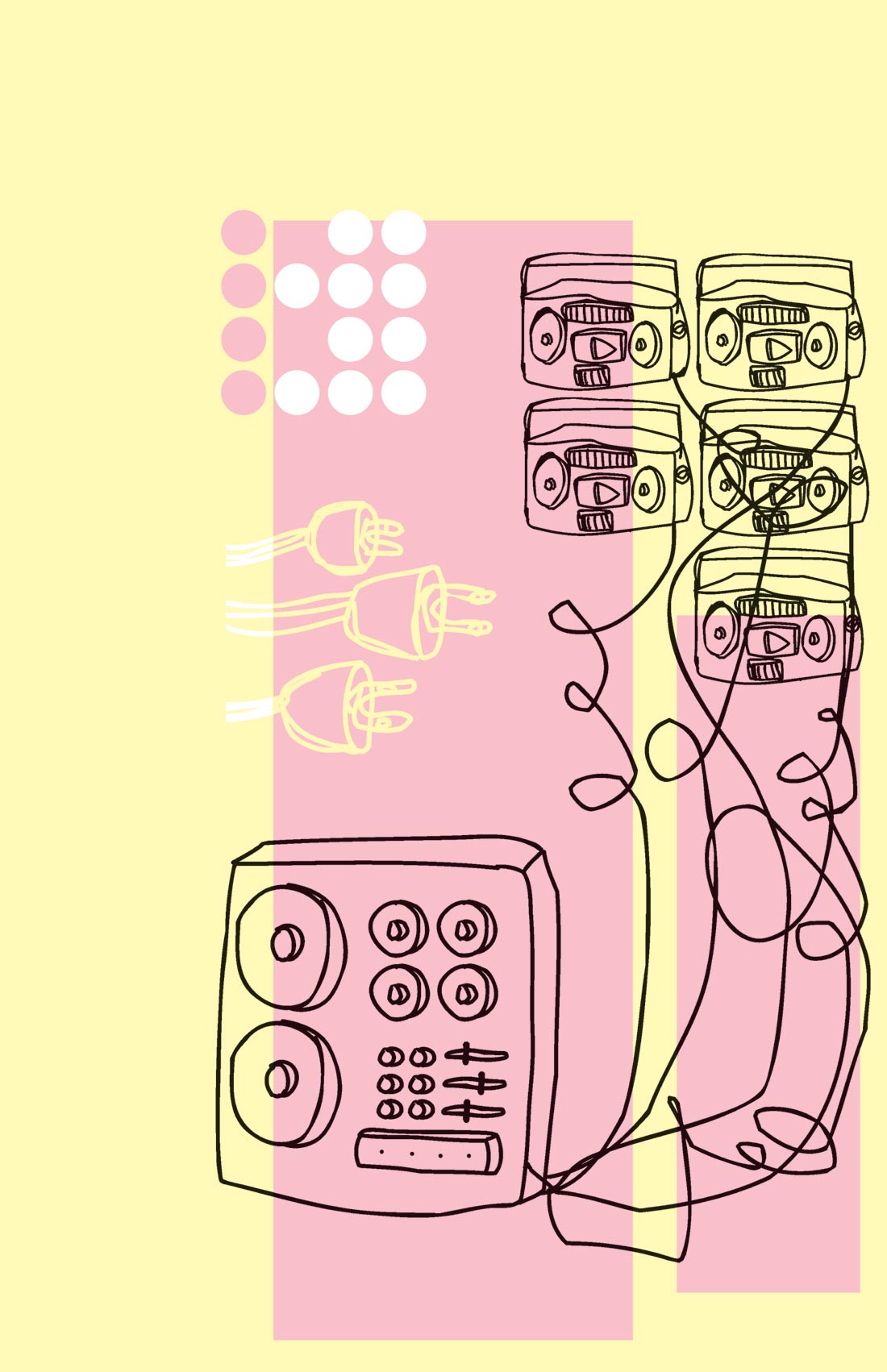

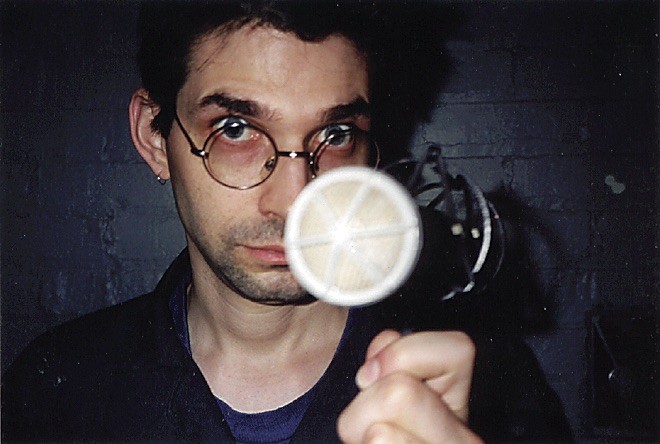
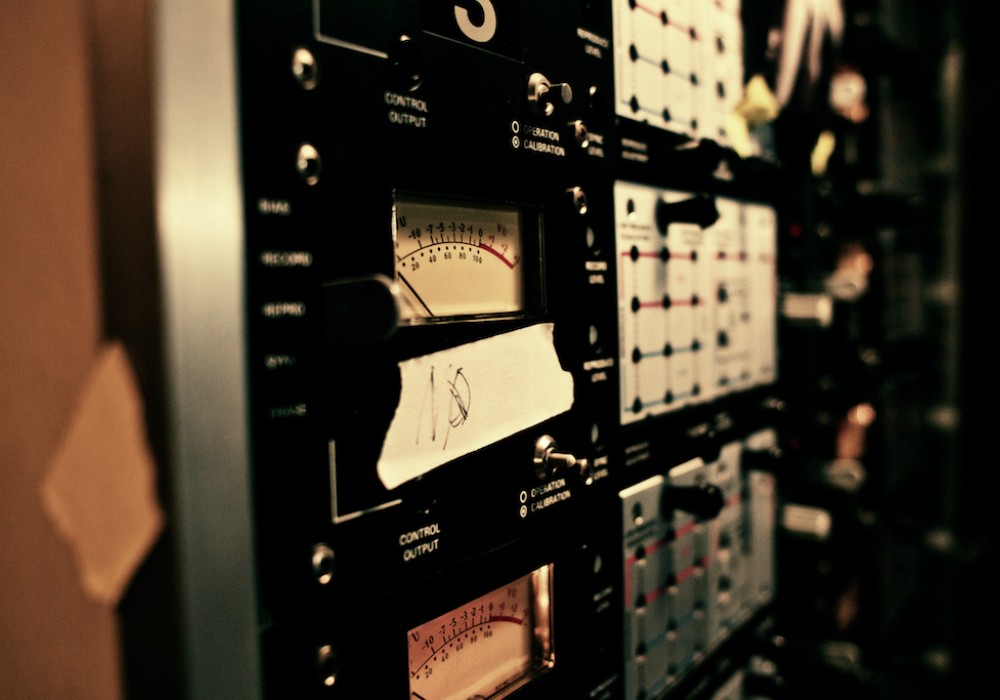
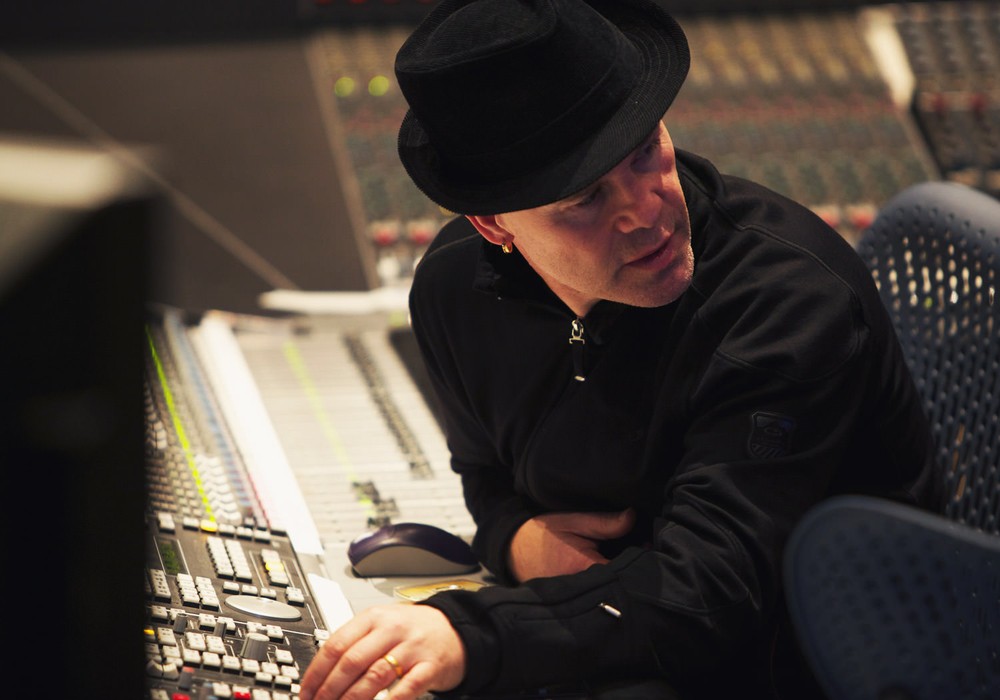
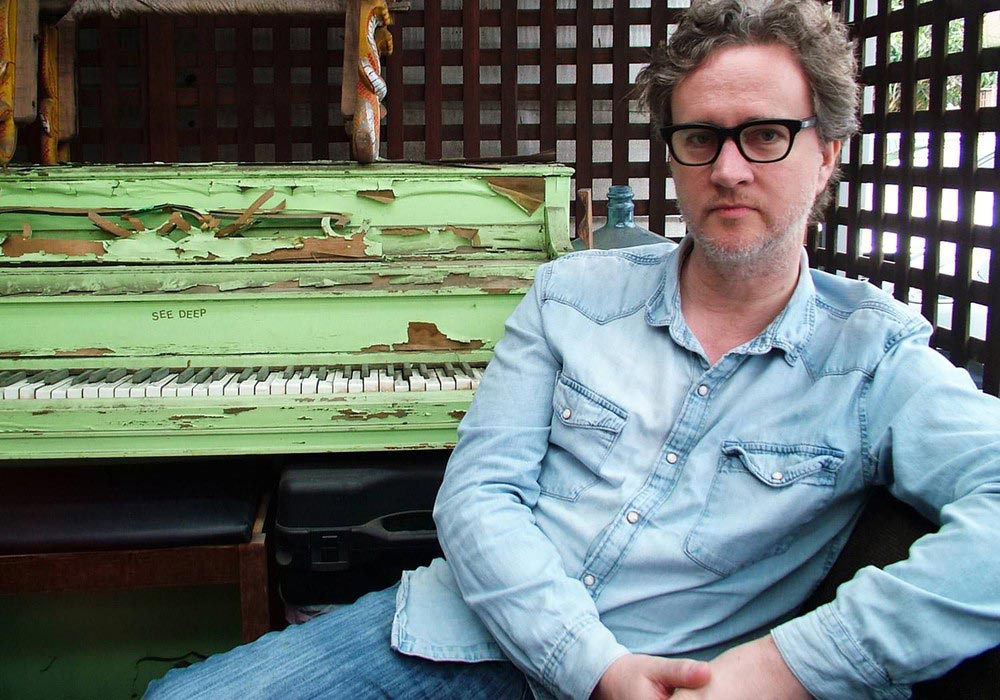
_display_horizontal.jpg)
